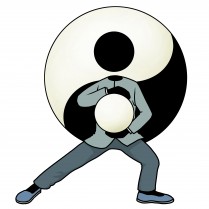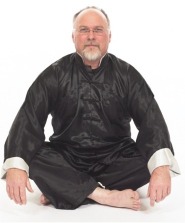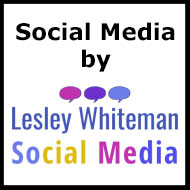It is intriguing to find as one asks the questions – what is Tai Chi? – how/why does it work? – that there are often two answers – the culturally Chinese one and an “equal but different” western science one and that they are connected through the reality of the human body which enables a translation between the two – a sort of Rosetta Stone of what is personal reality?
Much of the challenge for a westerner in studying Tai Chi comes from this “translation” process – itself part of the East/West cultural exchange inherent in present day globalisation. In the past it was necessary for a westerner to immerse themself in eastern culture so as to change their way of thinking and absorb and understand the ideas and models utilised – on a very personal and individual basis – what was referred to in the “British Empire” as “going native”. This required a great deal of personal dedication.
What we are experiencing now in the west is the mirror of that process – whereby the results of their dedication and of the Easterners who have travelled here are now being conveyed alongside western scientific models often by people who have had deep exposure to east and west over an extended period of physical training which has enabled them to transmit Tai Chi in a way that is more accessible than ever. Now we have in our own countries the benefit of top eastern teachers such as Chen Xiaowang, and their students such as Karel Koskuba – students who have in their own right attained a high level of expertise and understanding – grounded in the western cultural milieu – and so making true Tai Chi ever more accessible.
East-West knowledge and practices that interweave and co-relate include:
Taoism
Meridian theory
Five elements
Buddhism
Qi Gong
Meditation
Martial arts
Bio-sciences
Neuro-science
Quantum physics
Psychology
Engineering
Sport science
This has led to what I refer to as “The Quantum Mechanics view of Life” – where we can see many parallels between western science and eastern philosophy in understanding human activity on a daily basis.
For example the principles of Tai Chi and my own profession of Marketing share much in common – also I am told with Stand-up comedy and Health and Safety policy!
With all of these and when we try to understand qualities and values such as:
Love – Skill – Achievement – Wisdom – Art – Beauty – Caring
We find that they all involve living in uncertainty with the acceptance of change and come to realise that we can never be certain about any of these things – although we know when it is working right – but if we try to measure it then it fades away.






